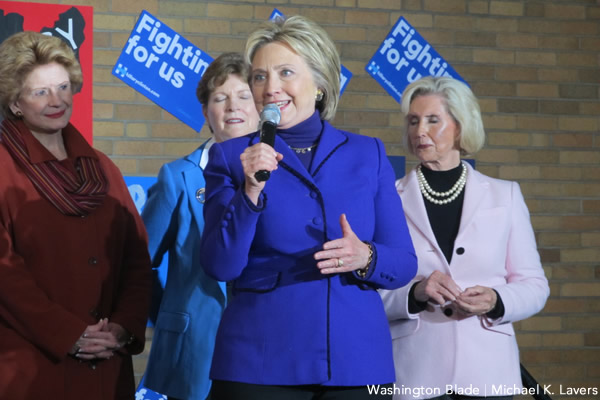a&e features
Hillary’s historic moment
Long-time feminists say gender is a factor in this year’s race
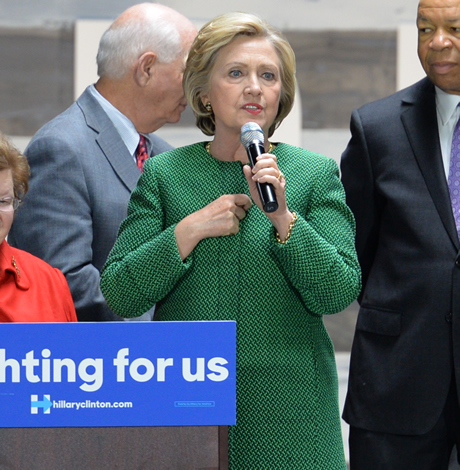
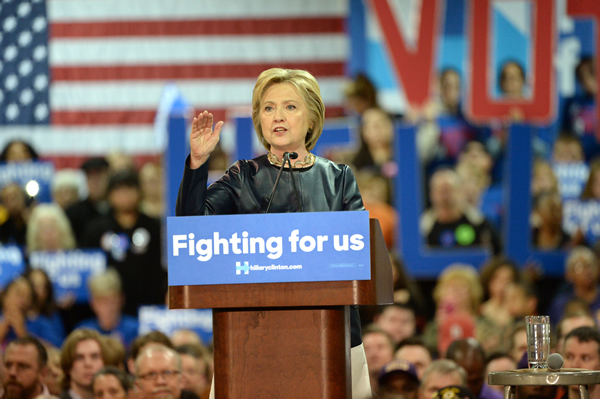
Hillary Clinton enjoys strong support among lesbian feminists. (Photo by Gino Santa Maria; courtesy Bigstock)
Benghazi! Hillary’s e-mails! Trump! At danger of getting lost in the overheated discourse of this year’s U.S. presidential election is the historic fact that Hillary Clinton is now the first woman to capture a major-party nomination for president.
There was Shirley Chisholm (who ran for the Democratic nomination in 1972), Geraldine Ferraro (Walter Mondale’s running mate in 1984), even Sarah Palin (John McCain’s running mate in 2008), but no woman has ever come as close to the presidency as Hillary Clinton.
In the wake of this achievement, what does it mean for the lesbian community, a group that has always been one of her strongest supporters? And why has the historic nature of her candidacy felt like little more than a footnote this year?
Hillary fatigue?
Out political comedian Kate Clinton thinks it’s because Hillary has been around so long — since 1978. Still, she says, it’s exciting to see Hillary win the nomination.
“I think it’s absolutely very, very exciting,” Kate Clinton says. “And add to the fact that she is the first woman nominee for a major party, is astounding.”
As the first out lesbian and African-American mayor in the United States, Denise Simmons of Cambridge, Mass., is used to her gender, race and sexual orientation making headlines.
Simmons expected Hillary’s nomination to get much more attention than it’s received. She agrees with Kate Clinton’s assessment.
“I do wonder if perhaps part of this is simply because she has been a national figure for such a long time,” Simmons says. “And therefore the sense of novelty just isn’t there.”
Elizabeth Birch, who served as executive director of the Human Rights Campaign from 1995-2004 and is also a friend of Clinton’s, says Clinton does not want the fact that she’s a woman to be the sole reason for anyone to vote for her.
“I think that’s why she’s been painstaking about amassing her credentials over the last two decades,” Birch says. “She absolutely wants [her election] to be on her merit, but nevertheless, none of us should forget what an extraordinary breakthrough this will be.”
Clinton’s gender, Birch says, is treated like a distraction from the “political theater” going on.
Blues singer and LGBT and black rights activist Gaye Adegbalola agrees with Birch. She thinks Clinton’s nomination isn’t headline news because Trump has “hijacked” the headlines.
“He’s the story,” Adegbalola says.
Kate Clinton says that any time some excitement is generated for Clinton, Trump will say something controversial, Benghazi and the email scandal are brought up and Americans become fixated on her purported failures.
“The Koch brothers, who, I like to call the cock brotherhood, have targeted money to just make her unfavorable, untrustworthy,” Kate Clinton says.
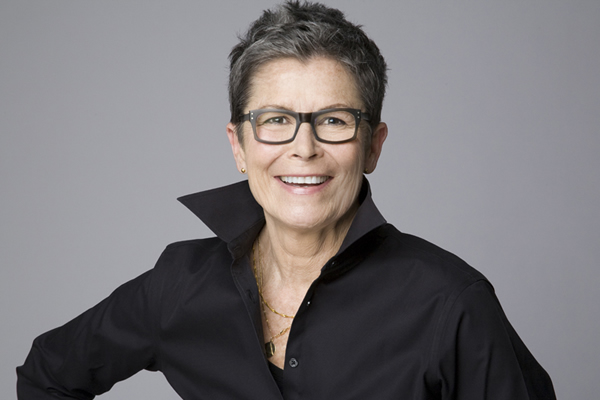
Kate Clinton says accusations that Hillary Clinton is untrustworthy are ‘absurd.’ (Blade file photo)
Trust issues
Kate Clinton says the fact that Hillary Clinton is painted as untrustworthy in the news media is absurd.
But, in many recent polls, conducted by the Huffington Post, pollingreport.com and CNN, many Americans say they do not trust Hillary Clinton.
Is the lack of trust in Hillary because of her politics, or could it be attributed to sexism?
Birch doesn’t think so.
“My diagnosis is that Hillary Clinton is extremely private for someone in the public sphere,” she says. “And she has, throughout her life, had unrealistic expectations for privacy.”
Birch says that in trying to protect her privacy and keep her life and decisions under wraps, Clinton has been misread.
“The level of transparency that’s required when you are in a position like the various positions she’s been in … all those steps she took to preserve privacy only lead to more problems,” she says. “You know, it’s never the actual crime, it’s always the cover-up.”
This, according to Birch, has always been Clinton’s downfall.
“The Clintons, as political figures, have certainly been guarded at many points throughout the past three decades, often with good reason,” Birch says. “And unfortunately this has opened Hillary Clinton to charges of having something to hide.”
Simmons disagrees with Birch. She says the lack of trust among voters has a lot to do with gender.
“Any time a female candidate is painted as untrustworthy, or shrill or calculating, one does wonder whether there is some sexism at play,” Simmons says.
Rev. Elder Darlene Garner, minister and LGBT activist and co-founder of the National Coalition of Black Lesbians and Gays, makes a different assessment. She blames populism for Clinton’s perceived untrustworthiness.
“I think it is blatant populism that masks sexism, that masks homophobia and transphobia, that masks racism and nationalism,” Garner says.
Adegbalola says that anyone who’s been in Washington as long as the Clintons will undoubtedly amass some “dirt,” but she says this is just how politics works.
“There has to be some bargaining and there has to be some, ‘I’ll kiss your ass, you kiss mine,’ kind of stuff that goes on,” she says.
When Hillary Clinton ran against Barack Obama in 2008, Adegbalola donated $25 to her campaign.
“I was all, you know, ‘Yay, a woman can do this,’ and then Barack started running and I was so in favor of him,” Adegbalola says. “Not necessarily because he was a black man, but because he hadn’t been in D.C. [for long].”
She also liked that he had worked for social justice in Chicago and that he had not been in the U.S. Senate for long.
“My excitement with him was that he was an outsider,” she says. “So now, here you got Trump, who comes along and he’s really an outsider and an asshole, but I think a lot of people take to him for that very reason, that he’s an outsider.”
Adegbalola thinks it’s hypocritical, however, for people to distrust Clinton but not Trump.
“Anybody who makes all that money,” Adegbalola says, “they’ve got to be doing some shady stuff, too.”
She’s astonished by how successful Trump has been.
Garner is surprised too and thinks that Trump’s success reveals the continued work for justice and equality that needs to be done.
“As a movement we have focused on legislative gains and have not given much attention to the quality of our relationships with one another,” Garner says.
Kate Clinton, on the other hand, does not think it’s surprising that Trump has been so successful. She is tired of people, especially Republicans, acting as if he is not representative of certain American beliefs.
She views Trump as a joke who desperately wants to be taken seriously.
“That’s where the danger is,” she says.
Kate Clinton believes that Trump’s desire to be taken seriously boiled over at the White House Correspondents Dinner in 2011. Obama referred to Trump’s threat to run for president at that dinner as a “joke.” Kate Clinton theorizes that Obama’s barrage of jokes at Trump’s expense is what propelled him to run.
“I really think that was the moment he decided, ‘I am not going to have a black man making fun of me,’” Clinton says.
Birch describes Trump as “dangerous.”
“I think the way that human society stays in equilibrium is to have extremely predictable institutions and leaders,” Birch says. “[If leaders] innovate somewhat in the structure of the institutions, I think humans don’t want jarring abrupt moves and they don’t want emotions stirred, played on and exploited.”
Trouble ahead?
Birch says unpredictable leaders bring problems.
“I think that waves move through every community and I think that his rhetoric has given license to some of this more acute tension in our country right now,” she says.
Simmons agrees.
“I find it incredibly disappointing that one of our major parties would see fit to nominate him to potentially lead the country,” she says. “He could do tremendous damage to our nation on a number of fronts.”
Adegbalola says a Trump presidency could be cataclysmic.
“I think it’s going to be even more divisive for America,” she says. “I think it’s going to widen the gaps between people of color and whites and marginalized people and the white establishment. I’m sure he has a lot of confederate flags in that audience, I’m sure.”
Kate Clinton cites Trump’s nomination of Mike Pence for vice president as representative of his disregard for the rights of marginalized people.
“Pence is hideous toward women,” she says.
Pence came to national attention in 2006 when he said that LGBT couples represented a “societal collapse” in the United States. He has often referred to being gay as a choice and same-sex partnerships as a violation of “God’s idea.”
He made national news again in 2011 when, as a member of Congress, he pushed for a bill to defund Planned Parenthood. In May, Pence rejected the Obama administration’s directive for school districts to allow students to use the bathroom for the gender they identify with saying the Obama administration had no business getting involved in “issues of this nature.”
Adegbalola also points out what could happen to the Supreme Court if Trump is elected.
Despite all this, there are still many people who look at Hillary Clinton’s past and are disturbed by her voting patterns.
In 1996, she supported the Defense of Marriage Act that defined marriage for federal purposes as the union between one man and one woman, and allowed states to refuse to recognize same-sex marriages performed under the laws of other states. Her support for the bill haunted her for two decades.
Kate Clinton says that the LGBT community needs to remember that she was not president when the act was passed.
“That was her husband,” Clinton says. “I think she was pretty representative of very political people weighing everything, trying to figure out and trying to say the right thing at the right time and that killed her career.”
In a campaign that many say is structured around humiliation and elitism, Garner says that voting for Hillary Clinton is important.
“I believe that she is a champion for human dignity and justice and I would expect that as president she would continue to do the same,” she says.
She cites Clinton’s attitudes toward children as proof that her presidency would benefit LGBT families.
“Her support of health care and even continued health care reform, will benefit all of us, including women,” Garner says. “And her economic policies will also benefit women, who are still underpaid in the American work force, and her presidency will be a direct benefit to lesbians as well as to all women.”
Adegbalola cites her own experiences as a self-employed musician and cancer survivor as one of the main reasons she plans to vote for Clinton. She says that in 2008 she was paying more than $700 a month for cancer treatment.
The Affordable Care Act, she says, is of paramount importance to her and she knows that under Clinton, Obama’s work will continue.
Birch says that growing up in Canada and seeing Queen Elizabeth’s picture hanging on the wall in all of her elementary school classrooms and having a female principal, made her think that women were in charge.
“I just thought, ‘Oh yeah my name is Elizabeth, the queen is Elizabeth, I guess I can go far,’” she says. “The psychological impact it will have on inspiring and lighting fires in young women … we can never underestimate it.”
Adegbalola, however, says at this point she is over Clinton’s gender.
“I’m simply looking at who would I vote for between the two,” she says. “[It’s] Hillary, there’s no question. And she’s smart and she’s been there, she’s paid her dues.”
Adegbalola doesn’t feel that anyone in the Republican Party, including Trump, would do anything to look out for marginalized people.
“I’m black, I’m poor, I’m a woman, I’m a lesbian, I’m a single parent, I’m old,” she says. “[That’s] like six kinds of oppression, so they might lock me up in a concentration camp.”
a&e features
Queer highlights of the 2026 Critics Choice Awards: Aunt Gladys, that ‘Heated Rivalry’ shoutout and more
Amy Madigan’s win in the supporting actress category puts her in serious contention to win the Oscar for ‘Weapons’
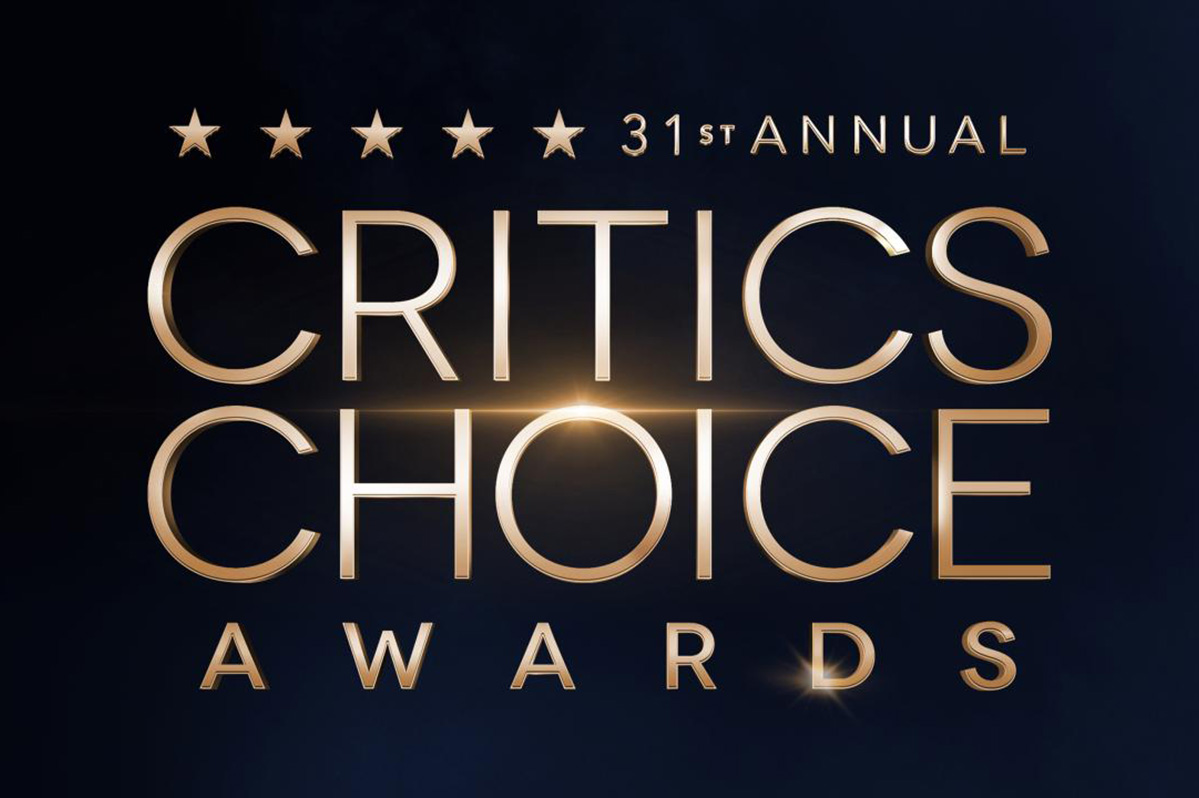
From Chelsea Handler shouting out Heated Rivalry in her opening monologue to Amy Madigan proving that horror performances can (and should) be taken seriously, the Critics Choice Awards provided plenty of iconic moments for queer movie fans to celebrate on the long road to Oscar night.
Handler kicked off the ceremony by recapping the biggest moments in pop culture last year, from Wicked: For Good to Sinners. She also made room to joke about the surprise hit TV sensation on everyone’s minds: “Shoutout to Heated Rivalry. Everyone loves it! Gay men love it, women love it, straight men who say they aren’t gay but work out at Equinox love it!”
The back-to-back wins for Jacob Elordi in Frankenstein and Amy Madigan in Weapons are notable, given the horror bias that awards voters typically have. Aunt Gladys instantly became a pop culture phenomenon within the LGBTQ+ community when Zach Cregger’s hit horror comedy released in August, but the thought that Madigan could be a serious awards contender for such a fun, out-there performance seemed improbable to most months ago. Now, considering the sheer amount of critics’ attention she’s received over the past month, there’s no denying she’s in the running for the Oscar.
“I really wasn’t expecting all of this because I thought people would like the movie, and I thought people would dig Gladys, but you love Gladys! I mean, it’s crazy,” Madigan said during her acceptance speech. “I get [sent] makeup tutorials and paintings. I even got one weird thing about how she’s a sex icon also, which I didn’t go too deep into that one.”
Over on the TV side, Rhea Seehorn won in the incredibly competitive best actress in a drama series category for her acclaimed performance as Carol in Pluribus, beating out the likes of Emmy winner Britt Lower for Severance, Carrie Coon for The White Lotus, and Bella Ramsey for The Last of Us. Pluribus, which was created by Breaking Bad’s showrunner Vince Gilligan, has been celebrated by audiences for its rich exploration of queer trauma and conversion therapy.
Jean Smart was Hack’s only win of the night, as Hannah Einbinder couldn’t repeat her Emmy victory in the supporting actress in a comedy series category against Janelle James, who nabbed a trophy for Abbott Elementary. Hacks lost the best comedy series award to The Studio, as it did at the Emmys in September. And in the limited series category, Erin Doherty repeated her Emmy success in supporting actress, joining in yet another Adolescence awards sweep.
As Oscar fans speculate on what these Critics Choice wins mean for future ceremonies, we have next week’s Golden Globes ceremony to look forward to on Jan. 11.
a&e features
Looking back at the 10 biggest A&E stories of 2025
‘Wicked,’ Lady Gaga’s new era, ‘Sexy’ Bailey and more
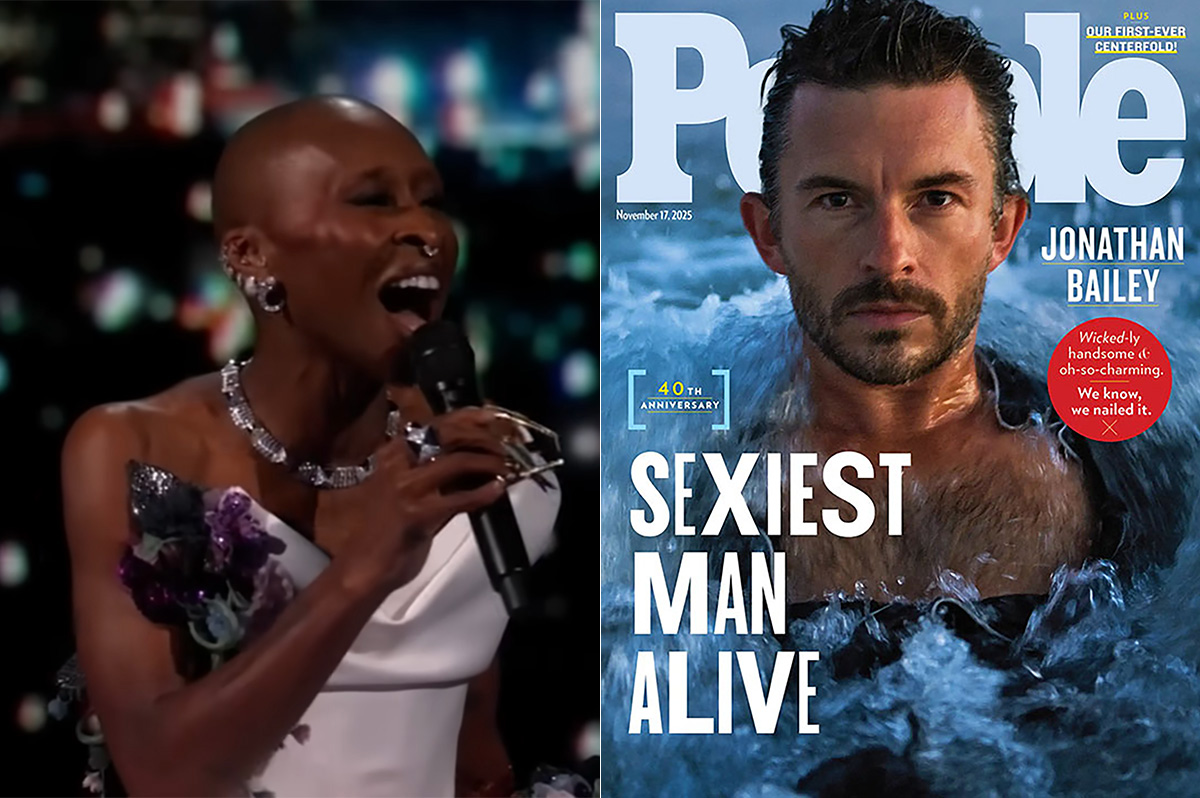
Although 2025 was a year marked by countless attacks on trans rights and political setbacks, the year also saw brilliant queer artists continuing to create art. From Cannes and Sundance Award winners now vying for Oscar consideration to pop icons entering new stages of their careers, queer people persevered to tell their stories through different media.
With the state of the world so uncertain, perhaps there’s no more vital time to celebrate our wins, as seen through some of this year’s top pop culture moments. While there’s no collection of 10 stories that fully encompass “the most important” news, here are some events that got the gays going:
10. ‘Mysterious Gaze of the Flamingo’ wins big at Cannes
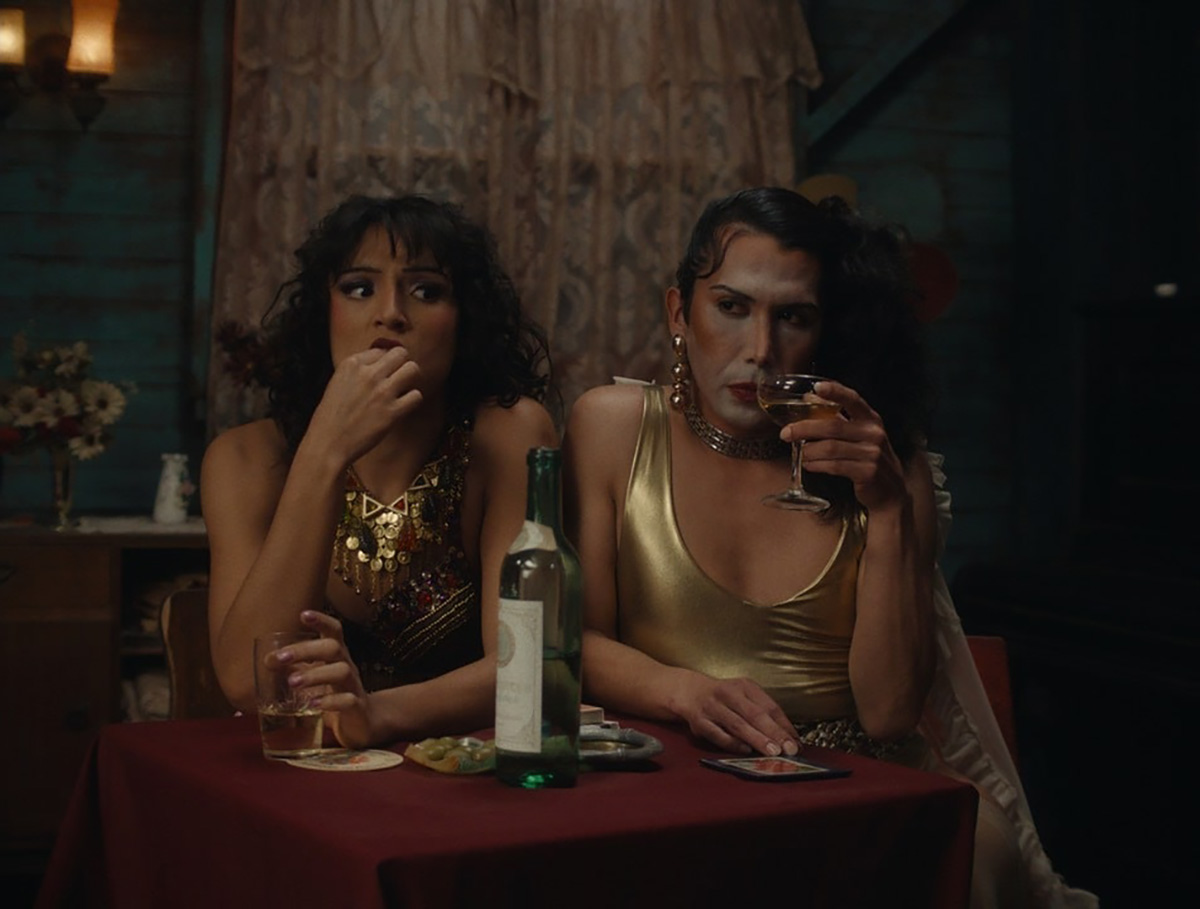
The Cannes Film Festival has become a crucial start for films hoping to make their way to the Oscars, and first-time director Diego Céspedes won the top Un Certain Regard prize for his intimate western “The Mysterious Gaze of the Flamingo.” The film is set in the ‘80s and is intended as an allegory for the AIDS epidemic. Seeing a film that unpacks vital queer history win one of the most coveted awards at Cannes has been a huge point of pride in the independent filmmaking community.
Since the film bowed at Cannes, it has been selected as Chile’s Oscar entry in the Best International Feature race. Speaking with The Blade during the film’s AFI Fest run in October, Céspedes said: At first, I was kind of scared to have this campaign position in the times that we’re living [in] here. But at the same time, I think the Oscars mean a huge platform — a huge platform for art and politics.”
9. ‘The Last of Us’ returns for an even gayer season 2
While the first season of The Last of Us gave us one of TV’s most heartbreaking queer love stories in the episode “Long, Long Time,” Season 2 doubled down on its commitment to queer storytelling with the blossoming relationship between Ellie (Bella Ramsey) and Dina (Isabela Merced). The show expanded on the pair’s relationship in the original video game, making it perhaps the central dynamic to the entire season. That unfortunately came with more homophobic backlash on the internet, but those who checked out all the episodes saw a tender relationship form amid the show’s post-apocalyptic, often violent backdrop. For their performance, Ramsey was once again nominated for an Emmy, but Merced deserved just as much awards attention.
8. ‘Emilia Pérez’ sparks controversy
Jacques Audiard’s genre-bending trans musical “Emilia Pérez” proved to be an awards season juggernaut this time last year, winning the Golden Globe for Best Musical/Comedy. But when the lead star Karla Sofia Gascón’s racist, sexist, and homophobic old tweets resurfaced, the film’s Oscar campaign became a tough sell, especially after Netflix had tried so hard to sell Emilia Pérez as the “progressive” film to vote for. Mind you, the film had already received significant backlash from LGBTQ+ audiences and the Mexican community for its stereotypical and reductive portrayals, but the Gascón controversy made what was originally just social media backlash impossible to ignore. The only person who seemed to come out of the whole debacle unscathed was Zoe Saldaña, who won the Oscar for Best Supporting Actress over Ariana Grande.
7. ‘Sorry, Baby’ establishes Eva Victor as major talent
Back in January at the Sundance Film Festival, Eva Victor (known by many for her brand of sketch comedy) premiered their directorial debut “Sorry, Baby” to rave reviews, even winning the Waldo Salt Screening Award. Victor shadowed Jane Schoenbrun on the set of “I Saw the TV Glow,” and seeing Victor come into their own and establish such a strong voice immediately made them one of independent cinema’s most exciting new voices. A memorable scene in the film sees the main character, Agnes (played by Victor), struggling to check a box for male or female, just one example of how naturally queerness is woven into the fabric of the story.
Most recently, Victor was nominated for a Golden Globe for her performance in the film, and she’s represented in a category alongside Jennifer Lawrence (“Die My Love”), Jessie Buckley (“Hamnet”), Julia Roberts (“After the Hunt”), Renate Reinsve (“Sentimental Value”) and Tessa Thompson (“Hedda”). The film also received four Independent Spirit Award nominations overall.
6. Paul Reubens comes out in posthumous doc
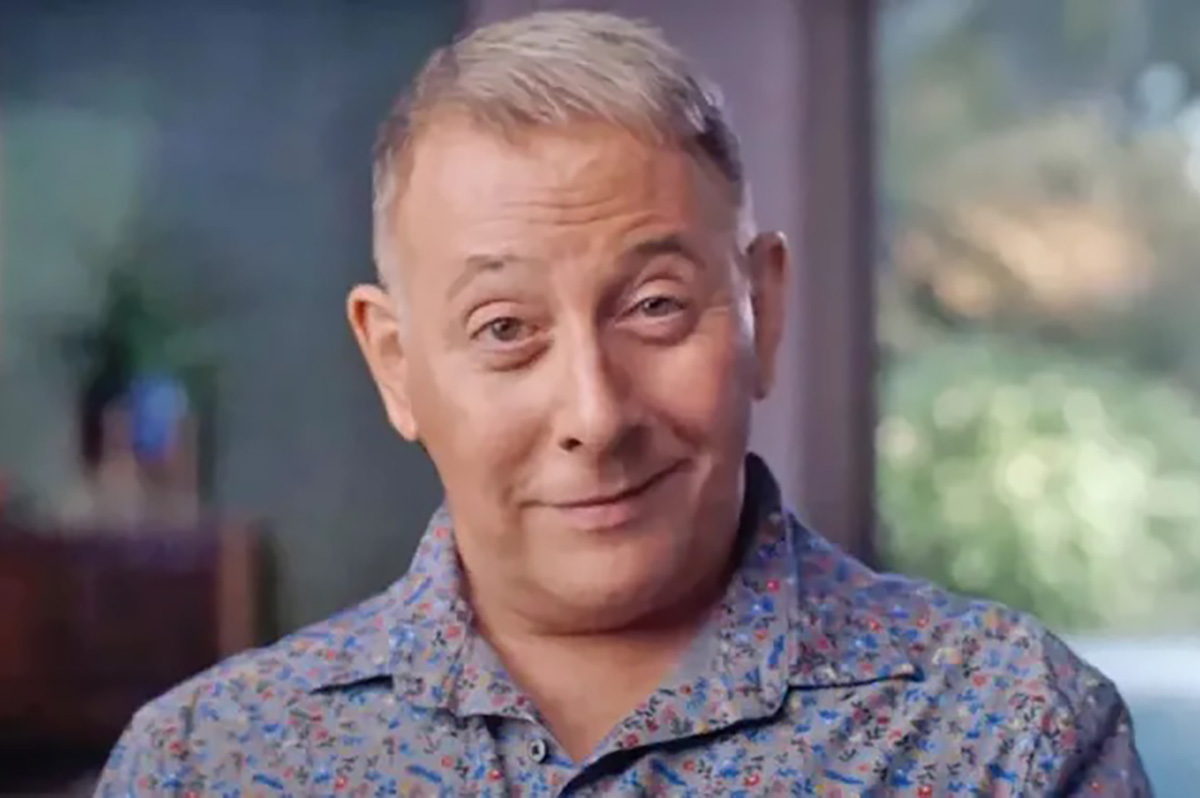
While Paul Reubens never publicly came out as gay before passing away in 2023, the two-part documentary “Pee-wee as Himself” premiered back in May on HBO Max, giving the legendary comedian a chance to posthumously open up to the world. Directed by Matt Wolf, the documentary explores how Reubens found his alter ego Pee-Wee Herman and why he kept his private life private.
The documentary won an Emmy in the Outstanding Documentary or Nonfiction Special category and remains one of the most critically acclaimed titles of the year with a 100% Rotten Tomatoes score. Also worth noting, the National Geographic documentary Sally told the posthumous coming out story of Sally Ride through the help of her long-time partner, Tam O’Shaughnessy.
5. Lady Gaga releases ‘Mayhem’
Lady Gaga entered a new phase of her musical career with the release of Mayhem, her seventh album to date. From the frenzy-inducing pop hit Abracadabra to the memorable Bruno Mars duet featured on “Die With a Smile,” seeing Gaga return to her roots and make an album for the most die-hard of fans was especially rewarding after the underwhelming film releases of “House of Gucci” and “Joker: Folie à Deux.” Gaga has been touring with The Mayhem Ball since July, her first arena tour since 2018. She even extended her tour into 2026 with more North American dates, so the party isn’t stopping anytime soon. And Gaga is even set to make an appearance next May in “The Devil Wears Prada 2.”
4. Cynthia Erivo, Ariana Grande perform at the Oscars
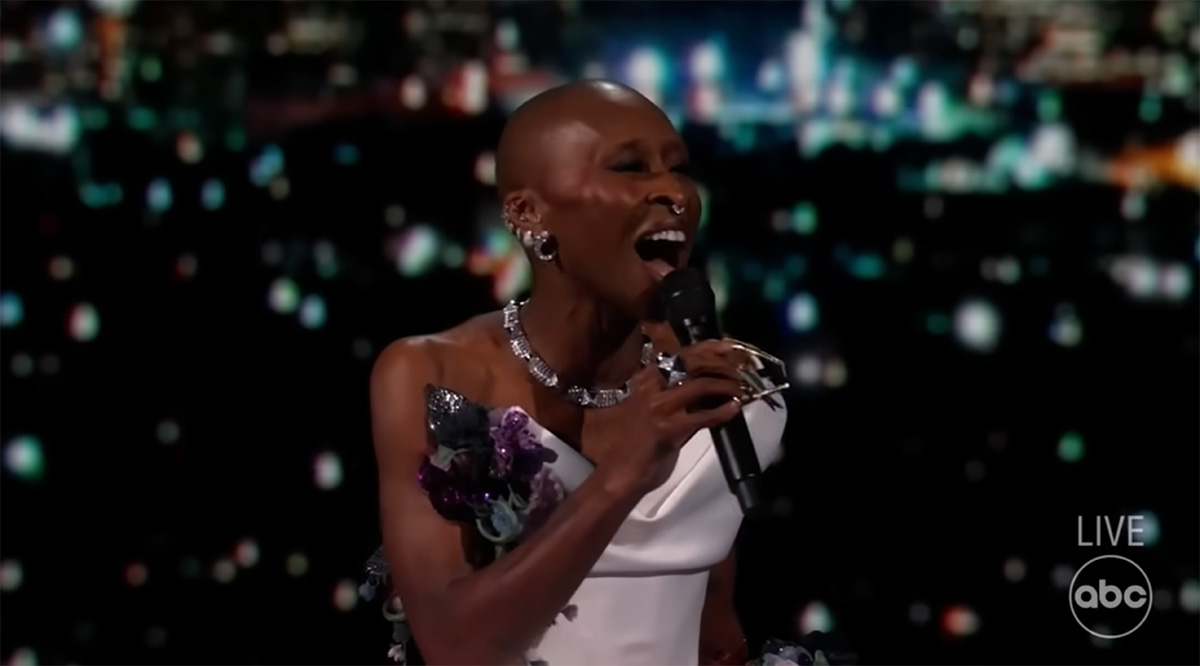
While “Wicked: For Good” didn’t quite reach the heights of the first film, we will forever have Cynthia Erivo and Ariana Grande’s breathtaking live performance that opened the 97th Academy Awards. The pair sang a rendition of “Over the Rainbow,” “Home,” and “Defying Gravity,” paying proper homage to the original 1939 “Wizard of Oz.” Even non-Wicked fans can’t deny how magical and brilliantly staged this performance was. With both Erivo and Grande up for acting Oscars last year, they’re hoping to repeat success and make history with consecutive nominations. Either way, let’s hope there’s another live performance in the making, especially with two new original songs (The Girl in the Bubble and No Place Like Home) in the mix.
3. Indya Moore speaks out against Ryan Murphy
Indya Moore has consistently used social media as a platform for activism, and in September, posted a 30-minute Instagram live speaking out against “Pose” co-creator Ryan Murphy. Moore claimed that Murphy wasn’t being a true activist for trans people. “Ryan Murphy, we need you to do more. You need to address the racism, the violence, and the targeting of people on your productions, Ryan Murphy. You do need to make sure trans people are paid equally. Yes, Janet did the right thing,” Moore said. Murphy was also back in the headlines this year for the critically panned “All’s Fair” and the controversial “Monster: The Ed Gein Story” starring Laurie Metcalf and Charlie Hunnam.
2. Cole Escola wins Tony for Best Leading Actor
Few pop culture moments this year brought us together more than Cole Escola winning a Tony award for “Oh, Mary!” the Broadway show they created, wrote and starred in (we love a triple threat!) Escola made history by becoming the first nonbinary person to win a Tony in the leading actor category, and seeing them excitedly rush to the stage wearing a Bernadette Peters-inspired gown instantly became a viral social media moment.
The cherry on top of Escola’s major moment is the recent news that they are writing a Miss Piggy movie with Jennifer Lawrence and Emma Stone producing — news that also broke the internet for the better. We cannot wait!
1. Jonathan Bailey makes gay history as ‘Sexiest Man Alive’
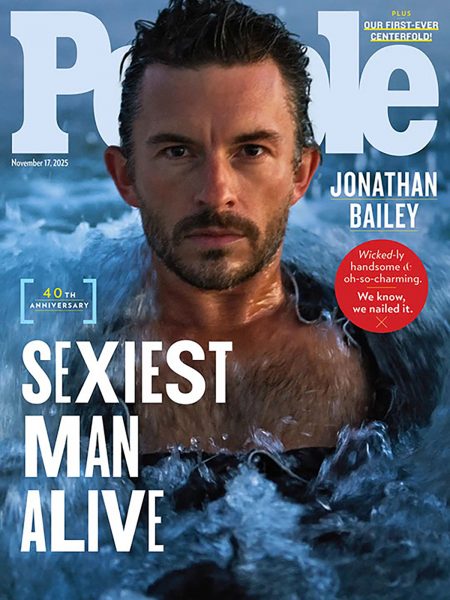
The same year as his on-screen roles in blockbusters “Jurassic World Rebirth” and “Wicked: For Good,” Jonathan Bailey made history as the first openly gay man to be named People magazine’s “Sexiest Man Alive.” The fact that it took 40 years for an openly gay man to earn the title is a signifier of how far we still have to go with queer representation, and seeing Bailey celebrated is just one small step in the right direction.
“There’s so many people that want to do brilliant stuff who feel like they can’t,” he told PEOPLE, “and I know the LGBT sector is under immense threat at the moment. So it’s been amazing to meet people who have the expertise and see potential that I could have only dreamed of.” In 2024, Bailey founded the charity titled The Shameless Fund, which raises money for LGBTQ+ organizations.
a&e features
Your guide to D.C.’s queer New Year’s Eve parties
Ring in 2026 with drag, leather, Champagne, and more
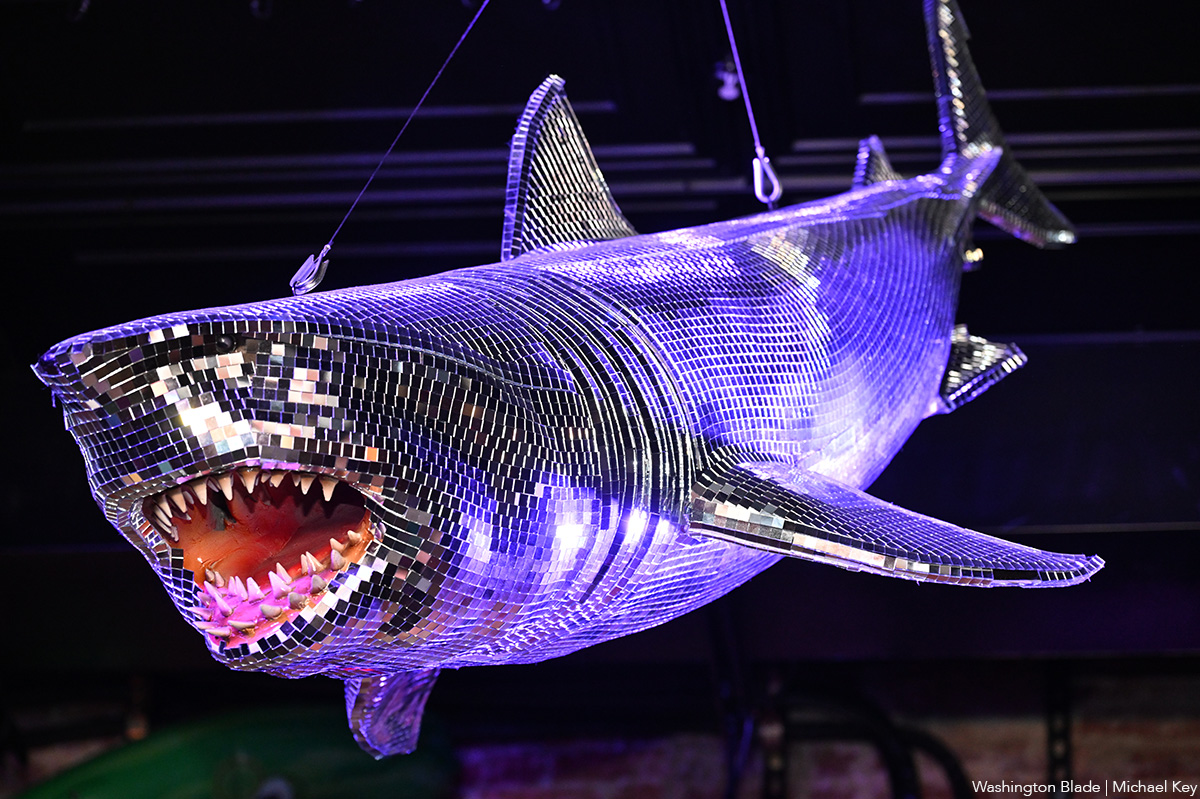
With Christmas in the rear view mirror, we can turn our attention to ringing in a much-anticipated New Year with a slew of local LGBTQ parties. Here’s what’s on tap.
Pitchers
This spacious Adams Morgan bar is hosting the “Pitchers’ Perfect New Year’s Eve.” There will be a midnight Champagne toast, the ball drop on the big screens, and no cover, all night long. The bar doesn’t close until 4 a.m., and the kitchen will be open late (though not until close). All five floors will be open for the party, and party favors are promised.
Trade
D.C.’s hottest bar/club combo is leaning into the Shark motif with its NYE party, “Feeding Frenzy.” The party is a “glitterati-infused Naughty-cal New Year’s Even in the Shark Tank, where the boats are churning and the sharks are circling.” Trade also boasts no cover charge, with doors opening at 5 p.m. and the aforementioned Shark Tank opening at 9 p.m.. Four DJs will be spread across the two spaces; midnight hostess is played by Vagenesis and the two sea sirens sensuously calling are Anathema and Justin Williams.
Number Nine
While Trade will have two DJs as part of one party, Number Nine will host two separate parties, one on each floor. The first floor is classic Number Nine, a more casual-style event with the countdown on TVs and a Champagne midnight toast. There will be no cover and doors open at 5 p.m. Upstairs will be hosted by Capital Sapphics for its second annual NYE gathering. Tickets (about $50) include a midnight Champagne toast, curated drink menu, sapphic DJ set by Rijak, and tarot readings by Yooji.
Crush
Crush will kick off NYE with a free drag bingo at 8 p.m. for the early birds. Post-bingo, there will be a cover for the rest of the evening, featuring two DJs. The cover ($20 limited pre-sale that includes line skip until 11 p.m.; $25 at the door after 9 p.m.) includes one free N/A or Crush, a Champagne toast, and party favors (“the legal kind”). More details on Eventbrite.
Bunker
This subterranean lair is hosting a NYE party entitled “Frosted & Fur: Aspen After Dark New Year’s Eve Celebration.” Arriety from Rupaul Season 15 is set to host, with International DJ Alex Lo. Doors open at 9 p.m. and close at 3 p.m.; there is a midnight Champagne toast. Cover is $25, plus an optional $99 all-you-can-drink package.
District Eagle
This leather-focused bar is hosting “Bulge” for its NYE party. Each District Eagle floor will have its own music and vibe. Doors run from 7 p.m.-3 a.m. and cover is $15. There will be a Champagne toast at midnight, as well as drink specials during the event.
Kiki, Shakiki
Kiki and its new sister bar program Shakiki (in the old Shakers space) will have the same type of party on New Year’s Eve. Both bars open their doors at 5 p.m. and stay open until closing time. Both will offer a Champagne toast at midnight. At Kiki, DJ Vodkatrina will play; at Shakiki, it’ll be DJ Alex Love. Kiki keeps the party going on New Year’s Day, opening at 2 p.m., to celebrate Kiki’s fourth anniversary. There will be a drag show at 6 p.m. and an early 2000s dance party 4-8 p.m.
Spark
This bar and its new menu of alcoholic and twin N/A drinks will host a NYE party with music by DJ Emerald Fox. Given this menu, there will be a complimentary toast at midnight, guests can choose either sparkling wine with or without alcohol. No cover, but Spark is also offering optional wristbands at the door for $35 open bar 11 p.m.-1 a.m. (mid-shelf liquor & all NA drinks).

